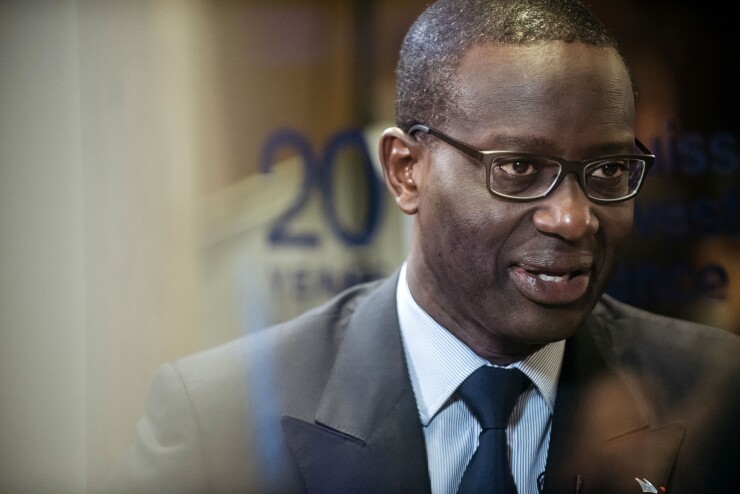Receiving Wide Coverage ...
Taking sides
Three of Credit Suisse’s largest investors are calling on Chairman Urs Rohner to publicly support CEO Tidjane Thiam or resign, “as a scandal over the surveillance of executives threatens to split the bank’s leadership,” the Wall Street Journal reports. David Herro, a partner at Harris Associates, the bank’s largest shareholder with an 8.42% stake, said “he believes the board’s view of Mr. Thiam is being

"Our point is very simple,” Herro said. “If it comes to a choice of who stays and who goes, do you keep the successful CEO, who has taken all the right steps, or do you keep the person who has been the cause of or been present for all the things that have hurt the bank over the past years? We urge the directors of the company to make the right choice.”
“Relations between Rohner and Thiam have been increasingly strained since revelations that Credit Suisse hired a corporate espionage company to follow Iqbal Khan, a former executive who defected to arch-rival UBS,” the Financial Times says.
“We are at the stage now where
Lowered sights
BNP Paribas, France’s largest bank by assets, “became the latest European lender Wednesday to
While reducing its 2020 profit target, the bank said its fourth quarter 2019 net income jumped 28%, “driven largely by its investment banking division, where revenues increased by almost a third on strong trading activity and higher market share in capital markets and advisory,” the FT says. “However, BNP
“With Deutsche Bank in retreat, BNP Paribas is competing for the dubious crown of European investment banking champion,” the Journal adds. “If it gets there depends in part on whether Brexit hobbles its British rival Barclays. Barclays is also eager to build its market share, but the London-based bank may be hampered this year by
Lender of last resort?
“Over the course of two decades,” Deutsche Bank lent Donald Trump and his businesses more than $2 billion, the New York Times writes in a long feature story, “so much that by the time he was elected, it was by far his biggest creditor. Against all odds, Trump paid back most of what he owed the bank. But the relationship cemented Deutsche Bank’s reputation as a
Separately, Deutsche Bank’s
Wall Street Journal
Ready to rumble
Judy Shelton’s “heterodox views on policy issues including central-bank independence, interest rates and the gold standard” make her a “
Financial Times
Who’s running the ship?
“HSBC has decided
Three of the bank’s largest investors “warned that a failure to confirm an appointment would raise concerns over whether the interim leader had the authority to implement sweeping changes of the kind that HSBC is planning. They added that it would be difficult for an external candidate to join partway through a strategic overhaul that had already started.”
Washington Post
Higher priced
The Student Borrower Protection Center, an advocacy group founded by former Consumer Financial Protection Bureau official Seth Frotman, “suggests” in a research study that Wells Fargo and online lender Upstart “
Both lenders “dispute the findings of the report and question its methodology,” the paper says. But researchers at the group “say they stand by their findings, which are based on publicly available data, and encourage regulators and lawmakers to scrutinize the use of education data in consumer lending.”
Quotable
“Similar to banks’ history of redlining in the housing sector, the use of education criteria in credit underwriting could result in borrowers of color receiving





